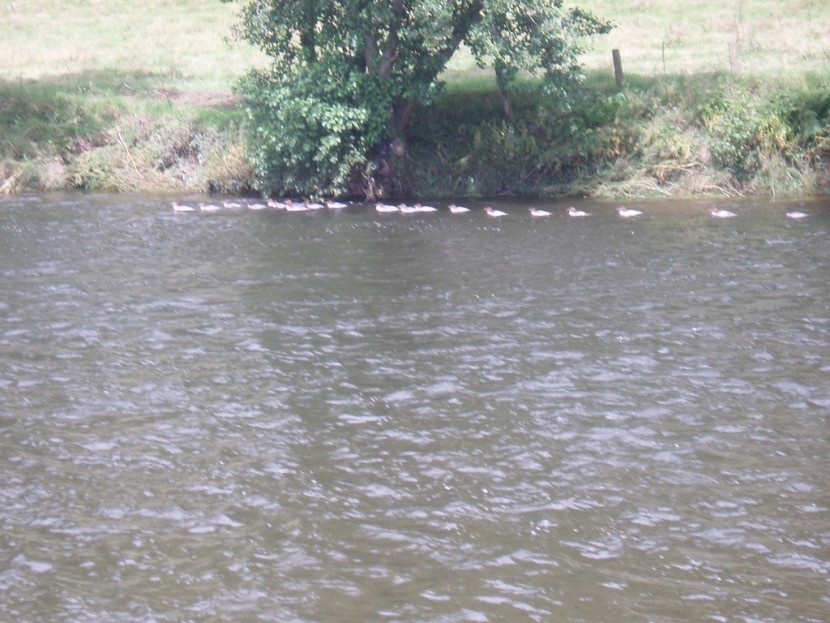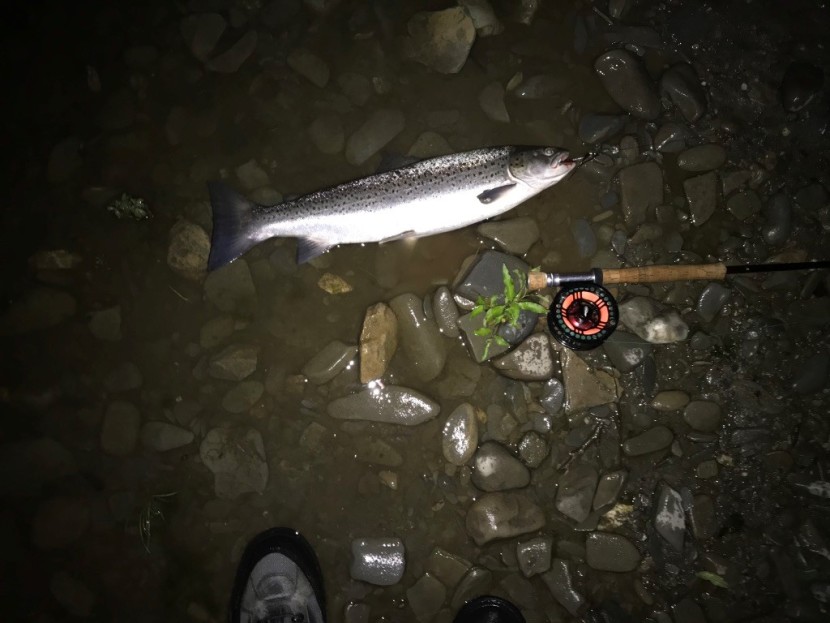Well, well! It is so difficult to begin with a fishing report when we are already half way through our season with only limited access for local fishermen on our rivers for a few weeks. The weather again has not been helpful, an extremely wet winter when the river levels remained high throughout and the rain did not relent until early March, followed by one of the driest three months during springtime in living memory. Now we have entered another phase of very wet weather which has already lasted over a week!
We have to consider the effect this pattern of weather has to our rivers and our fish. Firstly a dry spring when the demand for water is at its greatest from trees, grass and farming. May is the month for the migration of smolts and as has been shown on the Scottish Dee predation of smolts in low water can be catastrophic with 90% of these fish lost in a dry 2016. The same effect is felt here and sadly the smolt runs which I have enjoyed watching in the Dyfi Estuary under my house annually have been very poor this year.
The red breasted merganser was first seen in Wales in 1968 having arrived in Scotland in 1871 and thence into northern England in 1941. It is originally a Scandivian fish eating bird who eats on average 12 small fishes per day approximately 5,000 per year (of mainly salmon and trout parr) in the rivers of Wales. They breed well and it is not unusual to see broods of 12 or 14 poults as seen below. In the 1970’s and 80’s their numbers did not seem to increase greatly because during this period our rivers were inundated with mink which probably kept the numbers down as they nest in holes in trees – mink territory.


Of more recent times otters have been released onto our rivers in much greater numbers than are found in the wild and without doubt these have chased off or killed the mink. It is not before time that NRW actually begin to recognise the damage to our fisheries caused by the overpopulation of these birds and start looking at ways to mitigate this catastrophic effect on fish numbers. No parr, no smolts, no sea trout or salmon! Catch and release does not answer this problem as it is solely one small part of a proper plan to maintain and improve our rivers.
Of course there are other problems such as farming practices especially in Carmarthenshire and Pembrokeshire. The onus here falls on WAG to initiate a proper set of rules to avoid calamitous slurry pollution of the rivers. At present this seems to be a pipedream but we still hope that this will be addressed properly in the not too distant future.
Enough of complaining! As for the fishing it has been sporadic. Initially when the rivers opened to locals many complained that the night fishing in the low water was poor. Then came the rain and fish started to be caught in all the main rivers – mainly spinning and with the single worm (new byelaw NRW). The water brought welcome relief to all our rivers and surprisingly a good number of salmon were caught as were many sewin between 2 and 7lb. There has been little mentioned of bigger fish. I was lucky to be on the river the night before the rain and caught three good sea trout the biggest at a little over 5lb (seen above right and apologies for the poor photographic skills). Please note that sewin in Wales cannot now be kept if over 60 cm from 2020. 60cm is approximately 6lb for a fresh fish.
It is likely that night fishing will not start in earnest again until probably the middle or end of next week if the weather forecast is correct. In the meantime, if you enjoy spinning or worm fishing then the river conditions are perfect at present. Day fishing with the fly should be possible in the next few days and this should be interesting and enjoyable as not only are there decent sea trout to be caught but also now a lot of well conditioned small sewin, many of which this year are between a pound and a half and two pounds and are ready takers on a small fly in the higher water.
Whatever one does, we collectively have got to stay safe until this pandemic is controlled in the UK. Please do not handle other people’s rods and carry hand cleanser to open gates etc. We have had a curtailed and frustrating season but please take the opportunity to go fishing now – one of the safest places to follow the guidance for social distancing.
Illtyd Griffiths
AAPGAI Master Fishing Instructor and Senior Assessor for trout, sea trout and salmon.